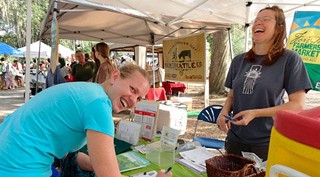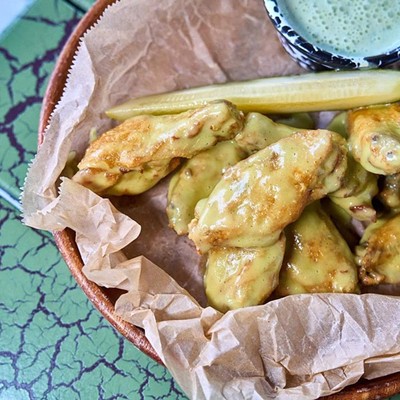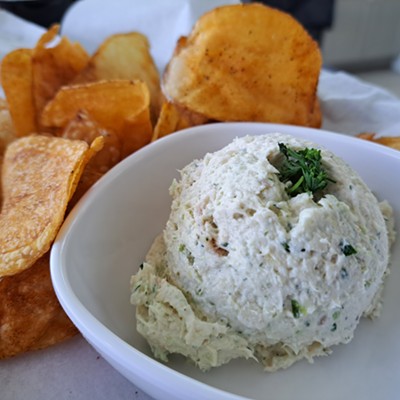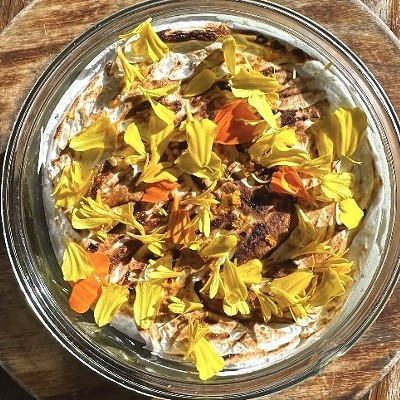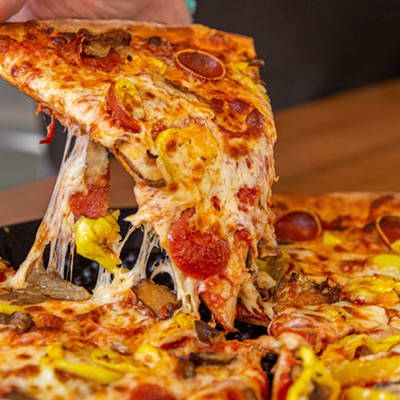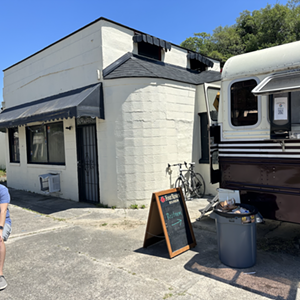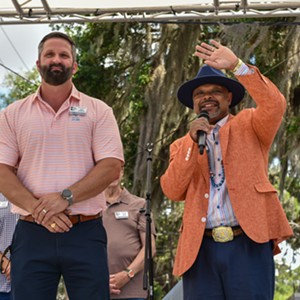It’s really quite simple: You’re hungry. You eat. Repeat three times a day for your entire life.
But it’s what - and how - we eat that makes all the difference in the world.
The politics of food have moved into the national consciousness in the last decade as healthcare costs balloon and the effects of conventional agribusiness continue to have detrimental effects on the environment. And there has been progress: Farm–to–school programs flourish. Community programs teach that food grown close to home uses less fossil fuels and that preparing organic food at home can be far cheaper than eating out. First Lady Michelle Obama and Naked Chef Jamie Oliver show us on TV how to grow and cook vegetables.
At the same time, there’s still unchecked junk food marketing to children, “food deserts” in low–income neighborhoods (where the only access to caloric nourishment is from convenience stores) and government subsidies that support an obsolete factory farming model.
It’s these issues that galvanized D.C.–based Center for Science in the Public Interest to organize Food Day, a national grassroots effort that has inspired dozens of events around the country taking place this weekend and on Monday.
Championing a platform of “6 Food Day Principles,” promoters wants to educate citizens about the legislative and policy reform needed to remove the barriers that keep citizens from affordable, healthy nourishment.
On a local level, Savannah already has a head start. The formation of the Chatham County Food Policy Council earlier this year brought together individuals and non–profits who have been concerned about food access and poverty for years, including Healthy Savannah, Step Up Savannah and two founders of the Forsyth Farmers Market, Teri Schell and Kristin Russell. The council was quick to partner with the national Food Day movement.
“The best way to change policy is to have public outcry,” explains Russell. “And you won’t have public outcry until people are educated.”
Since its inception, the FFM has abided by its slogan “Food for All” by actively marketing itself to lower–income neighborhoods, assisted housing complexes and other residential pockets within walking distance of the park. The market was one of the first in the country to accept EBT cards and has been able to double card value through a Wholesome Waves grant.
It generally operates Saturday mornings from April to mid–November, though there is talk that the 2011 season may be extended through mid–December. It will be open for regular hours in conjunction with the Savannah Food Day Festival, taking place a few blocks east at Mother Matilda Beasley Park this Saturday, Oct. 22.
The Food Day Festival promises education as well as entertainment, not to mention food vendors proffering the best in local and organic fare. The event, expected to draw 10,000 to 15,000 attendees, has been promoted in nearby churches and local schools to attract those who may not realize the abundance of affordable local and organic resources available. The Chatham Area Transit Authority donated billboards on five buses to broaden Food Day’s reach.
“Solving our environmental and poverty issues - it all comes down to food,” says Rene Teran, Food Policy Councilmember and publisher of local sustainable food publication Well FED.
“Helping people eat consciously, locally and in season reduces our use of fuel to truck fruit from other countries and reduces the strain on our healthcare system.”
Teran has helped organize the dozens of vendors, workshops and bands participating in the festival, convincing headlining acts the Train Wrecks, KidSyc@Brandywine and the McIntosh County Shouters to reduce their normal appearance fees. Knowing that policy talk can cause some people to doze off, he and the rest of the council wanted to put on an event that would raise awareness while tapping into Savannah’s art and music communities.
Child care and dog watching will be available along with Savannah Bicycle Campaign’s popular “bikesitting” services, and perishables will be collected for Second Harvest Food Bank. Food vendors have been handpicked to reflect the ideals of healthy and sustainable eating.
“No, there won’t be any funnel cake,” laughs Teran.
The workshop schedule runs the gamut from the basic (“If You Can Peel A Carrot, You Can Make Baby Food” led by Gin Johnson) to those geared to folks with a tad of experience in sustainable practices (“Making Natural Dyes with Food By–Products” hosted by Ashley Newsom of Haberdashery Eco Fashion.) Longtime local organic guru Kelly Lockamy will present her easy–to–follow system for year–round planting, and the City of Savannah Water Resources will be selling discounted compost bins and rainwater barrels next door at East Broad Elementary School.
Lockamy, who has been farming sustainably in her Wilmington Island garden since 1985 and teaching others do to the same through the Savannah Urban Garden Alliance (SUGA), is encouraged to see so much local and national attention on the subject of food.
“As people learn more about sustainability, they realize that means supporting local farmers and maybe growing some of their own food,” she says.
“Now what we need to do is grow some farmers.”
The Savannah Food Day Festival
When: 11am–5pm, Saturday, Oct. 22
Where: Mother Matilda Beasley Park, 500 E. Broad St.
Cost: Free and open to the public

